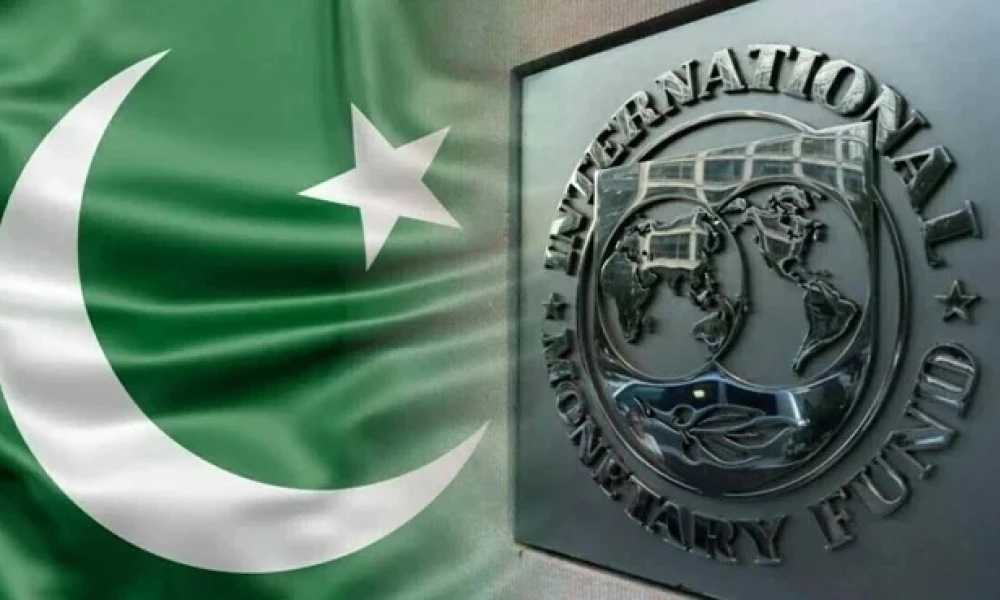ISLAMABAD, March 26: The International Monetary Fund (IMF) has successfully reached a staff-level agreement with the Pakistani authorities on the first review of the 37-month Extended Fund Facility (EFF) and on a new 28-month arrangement under the Resilience and Sustainability Facility (RSF).
This agreement highlights Pakistan’s continued efforts to stabilize its economy, reduce public debt, and address its vulnerabilities, particularly those related to climate change.
Economic Stabilization Progress:
Pakistan has made significant advancements in stabilizing its macroeconomic situation over the past 18 months, managing to reduce inflation to its lowest level since 2015, improving financial conditions, and narrowing sovereign spreads.
External balances have also shown improvement, although some risks remain.
These risks include potential policy slippages, geopolitical tensions that could disrupt commodity prices, tightening global financial conditions, or rising protectionism, all of which could undermine the progress achieved.
Additionally, climate-related risks are an ongoing challenge for Pakistan, requiring enhanced resilience-building efforts.
Fiscal Consolidation and Debt Reduction:
The Pakistani government has expressed its commitment to continuing fiscal consolidation in order to reduce public debt while ensuring there is room for social and development expenditures.
The authorities aim to achieve a primary surplus of at least 1.0% of GDP for fiscal year (FY) 2025 and plan to maintain fiscal consolidation into the FY26 budget.
The government is focused on enhancing revenue generation, improving public financial management, and ensuring transparency in spending.
One of the key steps in fiscal reform includes modifying the Agriculture Income Tax (AIT) regimes in all four provinces to expand the tax base and promote greater tax equity.
Monetary Policy and Inflation Control:
In response to the recent rate cuts, the Pakistani authorities have committed to maintaining a tight, data-driven monetary policy to ensure inflation remains within the medium-term target range of 5-7% set by the State Bank of Pakistan (SBP).
Additionally, the authorities are focused on maintaining a well-functioning foreign exchange market to facilitate exchange rate flexibility and help rebuild foreign exchange reserve buffers.
Energy Sector Reforms:
A crucial component of Pakistan’s reform agenda is the energy sector, where the government has made significant strides in reducing the circular debt and implementing tariff adjustments.
However, continued reform is necessary to further improve the sector’s financial health.
Read More: Pakistan and IMF Finalize Tariff Reduction Plan to Boost Trade
This includes enhancing distribution efficiencies, integrating captive power into the grid, upgrading transmission systems, privatizing inefficient generation companies, and increasing renewable energy adoption to lower tariffs and improve sector viability.
Structural Reforms for Private Sector Growth:
The government aims to implement structural reforms that reduce inefficiencies and boost productivity, thereby fostering private sector-led growth.
This includes fully implementing the governance framework for State-Owned Enterprises (SOEs), strengthening institutional capacity to fight corruption, and eliminating trade barriers to enhance investment and business opportunities.
Furthermore, Pakistan aims to introduce appropriate safeguards for the Pakistan Sovereign Wealth Fund (PSWF) to support long-term economic growth.
Building Climate Resilience:
A significant part of the agreement under the RSF involves addressing climate vulnerabilities.
The authorities are committed to prioritizing projects that enhance disaster resilience, improving the use of water resources through better pricing mechanisms, strengthening coordination for disaster financing, and enhancing climate-related financial disclosures.
Also Read: No Electricity Power Tariff Cut, IMF Blocks Govt Proposal
The RSF also emphasizes promoting green mobility to reduce pollution and mitigate the adverse health impacts of environmental degradation.
Financial Support and Access:
The new RSF arrangement provides Pakistan with around $1.3 billion in total access over the next 28 months. Once the IMF’s Executive Board approves the staff-level agreement, Pakistan will gain access to approximately $1.0 billion (SDR 760 million) under the EFF, bringing total disbursements to about $2.0 billion.
In conclusion, this agreement underscores Pakistan’s continued efforts to stabilize its economy, reduce vulnerabilities, and build resilience, especially in the face of climate challenges.
The IMF’s support will help Pakistan implement its reform programs and strengthen macroeconomic stability, creating a foundation for sustained growth in the coming years.
